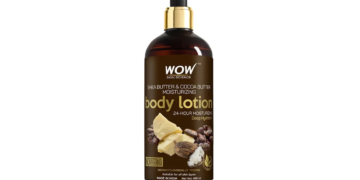Most people have heard of whey protein only as a workout supplement. However, its benefits are not limited to supplementing; it has significant roles in health and fitness. There is a myth that bodybuilders and athletes use whey protein powder to boost their energy and recover tiredness after strength training.
It helps you balance your weight, improve muscle development, reduces the harmful impacts of aging, and is well-known for its anti-aging qualities.
This article will help you explore more about the ways whey protein powder promotes anti-aging.
As per the U.S. Census Bureau, one out of four residents will become 65 years old by 2060 — it is almost 25% of the entire population. Significantly, the total percentage is under 17% today. As the number of aging people is escalating rapidly, it’s become more vital than any other time to help aged people stay healthy and fit. It can be possible by maintaining a proper diet and lifestyle. This same scenario is found in Australia as well.
When adults reach the age of 30, they’re bound to face age-related complications such as muscle and bone loss, known as Sarcopenia. Anybody can experience Sarcopenia; even healthy people can also be affected by it. The individuals who are victimised by the ill effects of Sarcopenia experience a 3% to 8% decrease in slender muscle each decade after crossing 30 years.
Fortunately, with the advancement of modern science, many people are becoming health-conscious and trying healthy tricks to prevent aging and age-related issues. For these people, whey protein intake can be a helpful solution.
Anti-Aging Benefits of Whey Protein
- Prevents Osteoporosis
With aging, people keep losing their abilities to maintain strong muscles and bones. According to many studies, older people having low protein levels are more likely to face a tremendous loss of bone density, especially in their hips and spines. However, the most convenient way of achieving healthy bones and muscles is- including whey protein in the daily diet.
A study showed adults who added 20 grams of whey protein to their daily diets were able to strengthen their bones and prevent osteoporotic fractures. An average protein supplement contains a maximum of 20 grams of protein for each serving, making it an entirely feasible objective for customers.
- Lifts Immune Systems With Higher Glutathione Levels
Glutathione is a tri-peptide that whey protein contains. It can deal with immunity and act as an antioxidant. In addition, it has properties that can prevent cancer. Also, the human body produces Glutathione. As it is produced inside your cells from amino acids, Glutathione keeps the integrity of telomeres in human DNA, which are deteriorated with aging.
Glutathione supplements provide no health benefits while taking directly. Research has demonstrated that whey protein is the most beneficial supplement for those who need Glutathione.
- Improves Metabolism
As opposed to what a few people believe, taking protein-rich food improves Metabolism. This effect, known as thermogenesis, makes protein essential than fat or sugars. Researchers found that whey protein has a higher thermogenic effect than other protein sources and has higher fat oxidation properties.
Many people replace heavy cream, milk, butter, and eggs with whey protein powder. It is the best way of improving your Metabolism that often troubles people who are getting older.










